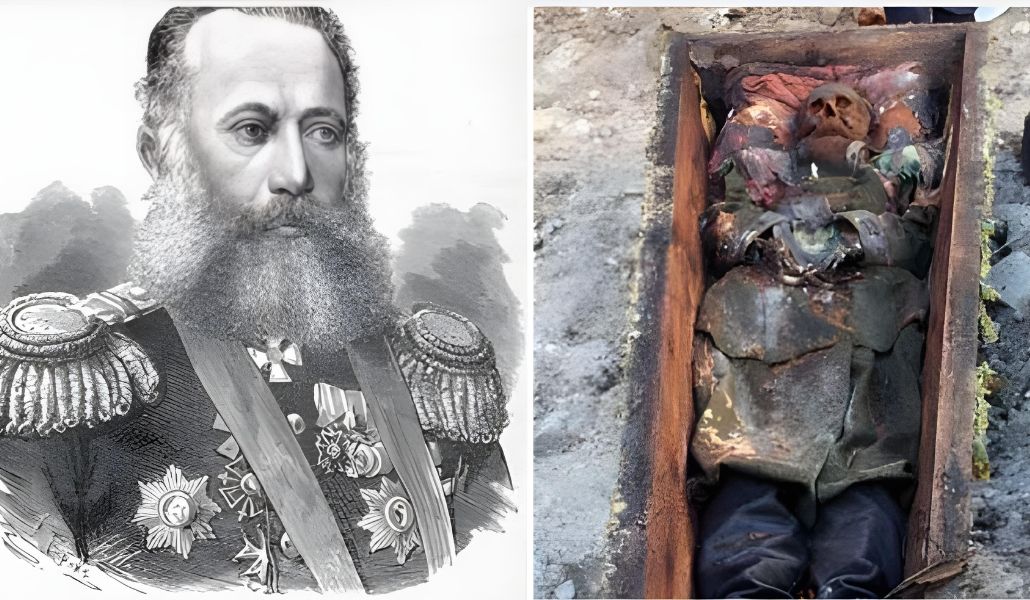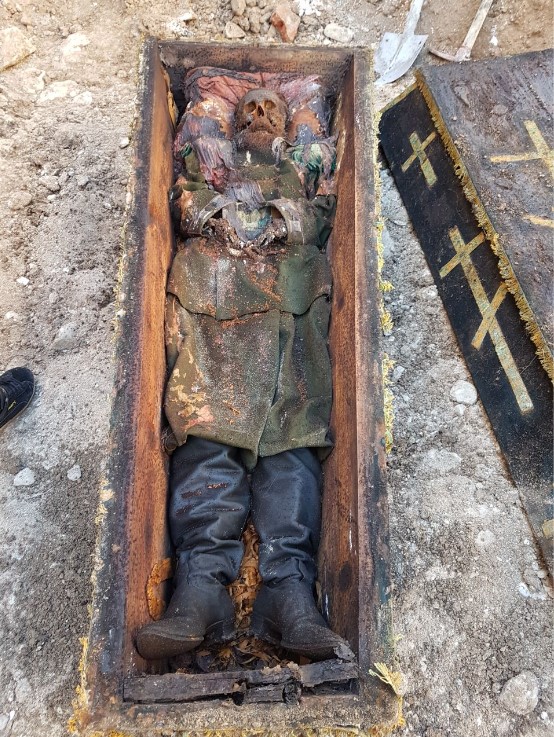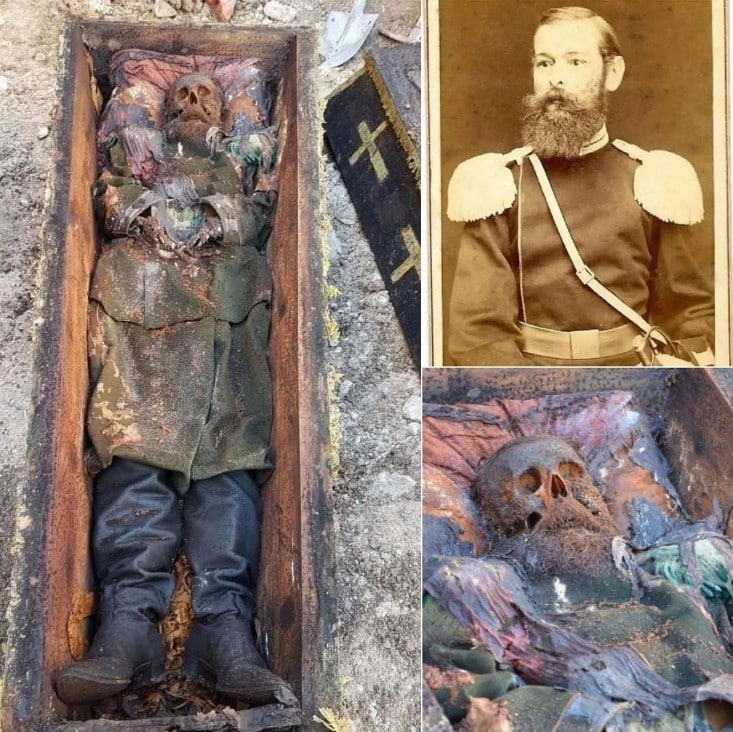A 19th-Century Officer’s Grave Is Discovered In Turkey
In the grim aftermath of war, the toll extends beyond the battlefield, leaving families grappling with uncertainty and loss.
Countless lives are lost, yet many loved ones remain unaccounted for, their final resting places remaining unknown. As the echoes of conflict fade, the search for answers continues.
While most remains have become one with the sands, some are fortunate to be found. Lt. Col. Karl Karlovich Rjepetski is one such lucky case, although this occurred over a century later.
The remain of a 19th-century Czarist officer was found

On April 26, 2017, during excavation work for a new construction project in the Karagol neighborhood of Ardahan, the remains of a Polish-born Czarist officer were found.
The officer was identified as Lt. Col. Karl Karlovich Rjepetski from the First Caucasus Army Corps’ 20th Infantry Division, whose body was found in a coffin adorned with a Russian Orthodox cross.
Lt. Col. Rjepetski’s remains, which date back to the period when Ardahan was captured by Russian forces in May 1877, offer a unique glimpse into the region’s history.
To ensure its preservation, the body was then transferred to a local museum.
He was believed to die in the Russo-Turkish War of 1877-1878

Given the historical context of Ardahan’s capture by Russian forces in May 1877, it is believed that Rjepetski died during the Russo-Turkish War of 1877-1878.
The Russo-Turkish War led to the Treaty of San Stefano and subsequently the Treaty of Berlin, both of which dramatically altered the political landscape of the Balkans.
As a result, Bulgaria gained autonomy, Romania, Serbia, and Montenegro declared independence, and Russia expanded its territory in the Caucasus, acquiring areas like Kars and Batum.
The human cost was significant. The Russian Empire endured around 90,000 to 120,000 military casualties, including deaths and injuries.
The Ottoman Empire faced approximately 30,000 military deaths, with an additional 60,000 to 90,000 soldiers succumbing to wounds and diseases.
The war also caused extensive civilian suffering, displacing hundreds of thousands of Turkish, Albanian, and Jewish civilians.
There was a dispute over Rjepetski’s gravesite: Poland vs. Russia

According to Efsal Alantar, the provincial director of culture and tourism in Ardahan, a team of experts was relocating the headstone and other artifacts from the grave to a museum for display. This action followed a decision by the Kars Regional Council for Conservation of Cultural Heritage.
He also mentioned that this move would allow the construction project to continue without further delay.
The discovery of the grave has led to a dispute between Poland and Russia, which both claim the right to the remains. Poland wants to give the body a proper funeral and burial since Rjepetski was born there and has descendants in Poland.
The grave’s discovery has sparked a dispute between Poland and Russia, as both countries claim rights to the remains. Poland seeks to give the deceased, who was born there and has descendants in Poland, a proper funeral and burial.
But Culture and Tourism Minister Numan Kurtulmuş told the Turkish parliament that “Russia says, ‘There was no Poland at the time … so this is our citizen. They want him to be buried in a graveyard in a Christian village in Ardahan.”
“We are trying to solve the issue without creating a problem between the two countries,” he added.
Rjepetski’s family was originally from the Volynskyi region of western Ukraine. He received training at an infantry military school in Warsaw.
After his passing, it’s believed that his wife and two daughters lived in Tbilisi, Grodno, and Moscow.
Despite being Catholic, Rjepetski’s funeral was held at an Armenian church because Ardahan didn’t have a Catholic church. According to his death certificate, he died from a brain hemorrhage.

